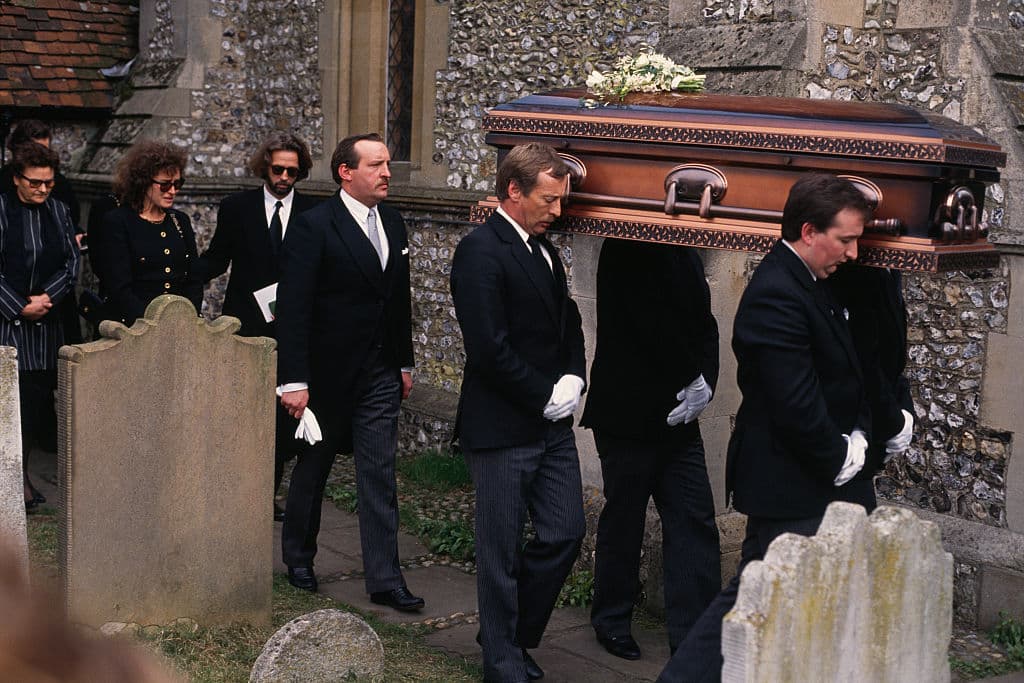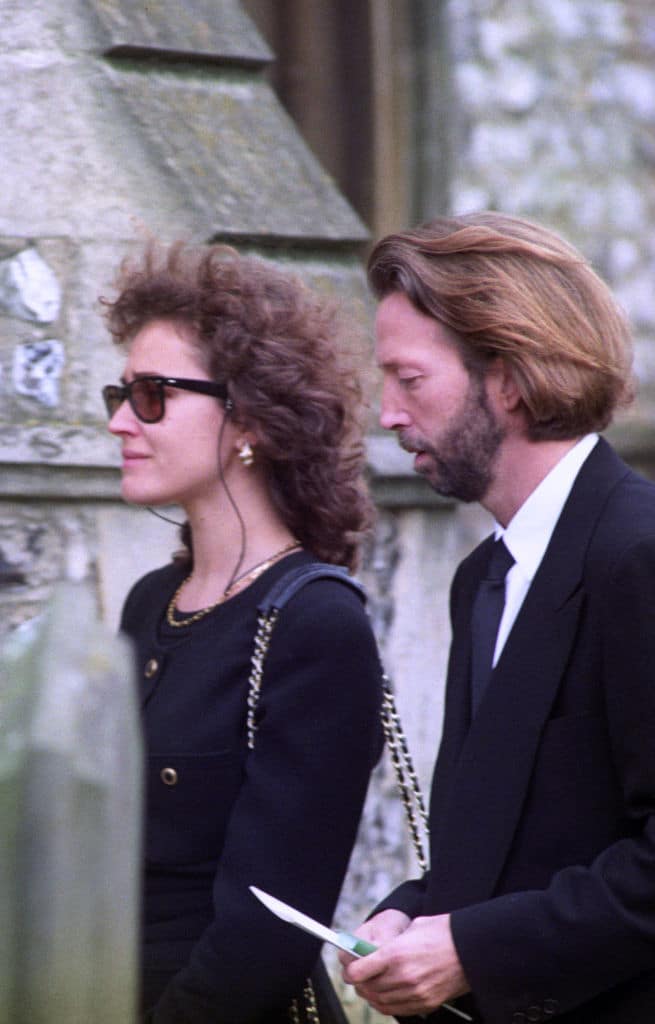Eric Clapton’s life was forever changed on March 20, 1991, when he suffered the unimaginable loss of his four-year-old son, Conor, in a tragic accident. The little boy fell from a 53rd-floor apartment window in New York City, just weeks before his fifth birthday. His mother, Italian actress Lory Del Santo, was with him at the time, and the incident occurred in a matter of seconds.
A housekeeper had just cleaned the window, which had been left open and unlatched. Conor, full of energy and excitement, darted past and fell before anyone could stop him. Lory, distracted for only a brief moment by the sound of a fax machine, was just steps away.
“I walked in just a fraction of a minute too late. He had gone. If I hadn’t checked the fax, he’d still be alive,”
she later said.
Clapton, who had been on his way to pick up Conor for the day, was devastated when he received the news. Lory recalled how he froze, unable to respond when she told him what had happened. Their bond, deeply connected through their son, broke in the aftermath.
Though Clapton and Lory were no longer a couple, Conor had come to New York to spend Easter with his father. The day before the tragedy, Clapton had taken Conor to the circus — their first full day spent together alone — and it turned out to be their last. Clapton, moved by the experience, was eager to build a deeper relationship with his son. According to biographer Philip Norman, Clapton had decided that from that moment on, he was going to be a “proper father.”
He even had plans to bring Conor and Lory to London to live with him. The following day, he had promised to take Conor to the Bronx Zoo, followed by a meal at an Italian restaurant. But that morning ended in heartbreak instead of another shared memory.
In the weeks after the accident, Clapton brought Conor’s body back to England for the funeral in Ripley, Surrey — the village where he grew up. Overcome with grief, he withdrew from public life and went to Antigua, where he rented a small cottage in a secluded area. There, surrounded by silence and solitude, he spent almost a year trying to heal.
“I just swatted mosquitos all day and played this guitar… and stayed there for almost a whole year without much contact with the outside world,”
he shared later. He clung to a Spanish string guitar and turned to music to navigate the depths of his sorrow.
Clapton played, wrote, and re-performed his songs over and over, slowly working through his grief. One of those songs became the hauntingly beautiful Tears in Heaven, which he co-wrote with Will Jennings. Initially intended for a film soundtrack, the song became a deeply personal tribute to Conor and a way for Clapton to express the pain he couldn’t speak aloud.
Adding to the heartbreak, shortly after the funeral, Clapton received a letter from Conor. It was the boy’s first letter to his father, written just days before the accident with the help of his mother. In it, Conor had written simply: “I love you.”
“That is a moment I cannot forget,”
Lory said of watching Clapton open the letter, which had arrived at his London home too late.
Clapton’s experience stands as a painful reminder of how fragile life can be. His journey through grief was one of silence, solitude, and eventual expression through music. And though the world remembers him for his legendary career, many also now remember the quiet, tragic promise he made — to be a better father — and how it was cut short before it truly began.







